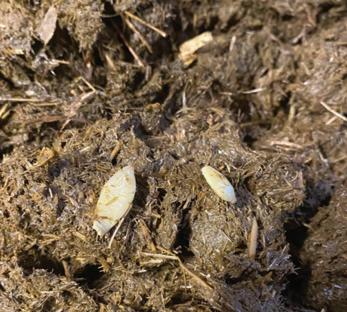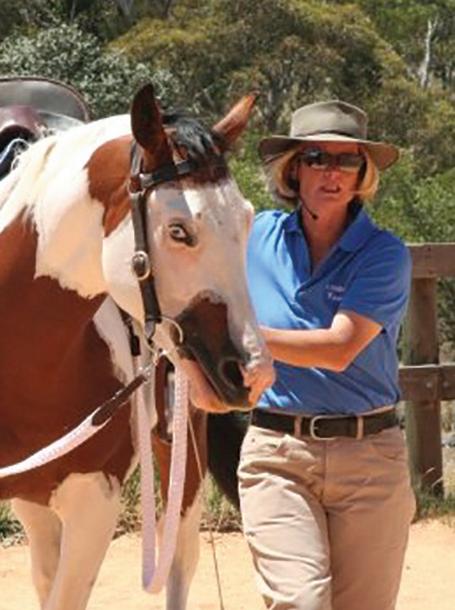2 minute read
The Horse Report Stress plays a big role in horse gut health
Next Article
From Page 11
Vitamins and minerals can be supplemented by providing the full recommended amount of a quality pre-mixed feed, or by adding a balancer powder or pellet.
* If feeding a reduced rate of pre-mixed pellets or muesli, use a balancer powder to top up and balance your horse's vitamin and mineral requirements. Remember that it is possible for a horse to be deficient in one mineral even if the recommended daily intake is given unless all minerals are provided in correct mineral ratios.
* Consider adding a daily serve of live yeast probiotics and prebiotic fibre to nourish the beneficial microbes in the horse's digestive tract. Live yeast is proven to support a healthy gut microbiome and to improve feed use efficiency, so your horse gets more nutrition from every mouthful.
* If your horse is working hard or competing and being transported it can be worthwhile adding a concentrated source of antioxidants during the recovery phase.
Ulcers, nutraceuticals and loss of appetite
Horses under stress often suffer gut dysbiosis leaving them with a sudden reduction in the beneficial microbes they rely on to ferment fibre and produce many of the B-group vitamins required in the diet.
Even a small deficiency in B group vitamins can cause appetite suppression and lead to nervous system disfunction than can result in behavioural changes.
This can be the beginning of a downward spiral which includes picky eating and can lead to gastric ulcers (due to lack of gut fill) which further exacerbates lack of appetite. Studies show that equine gastric ulcers can form in an empty stomach during a period as short as four hours or in only a few hours of transport where stress is an exacerbating factor.
Owners often feed high-starch, sweet feeds and grains to encourage their fussy horses to eat, but the starch in these feeds can exacerbate the problem.

Although the horse wants to eat the tasty feed, he or she learns that gut pain follows eating a high starch meal.
If you suspect your horse has gastric ulcers, consult with your veterinarian for a full diagnosis and medication as required. Nutraceutical support with ingredients such as aloe vera, fermented soy flour, lecithin, pectin and sea-buckthorn may assist management of horses with ulcers.
Nutritional support before, during and after stress with vitamin B complex, antioxidants, prebiotics and probiotics can help to maintain and restore appetite.
Tips to tempt a fussy eater
* Feed smaller meals more often. Remove old feed within a few hours and give the next feed in a clean feed bin.
* Experiment with different moisture content of feeds. Aslightly moist hard feed is ideal, but some fussy horses will only eat dry or wetter feeds.
* See whether your horse prefers pellets, muesli or mash style textures.
* Add vitamin B complex to boost appetite.
* Add live yeast probiotics to help stabilise gut acidity and the microbiome.
* Horses with gastric ulcers should avoid sweet feeds, sugar/molasses and high starch meals which, although tasty, may cause gut pain after ingestion.
* Ensure a constant supply of fresh, clean water.
Performance horse owners are often pleasantly surprised how much difference a few changes in the horse's environment, improving the mineral balance of the diet and adding good probiotics can make to the health and well-being of their hard keeper. Do you have questions? Contact the author: larissa@farmalogicglobal.com for assistance.









